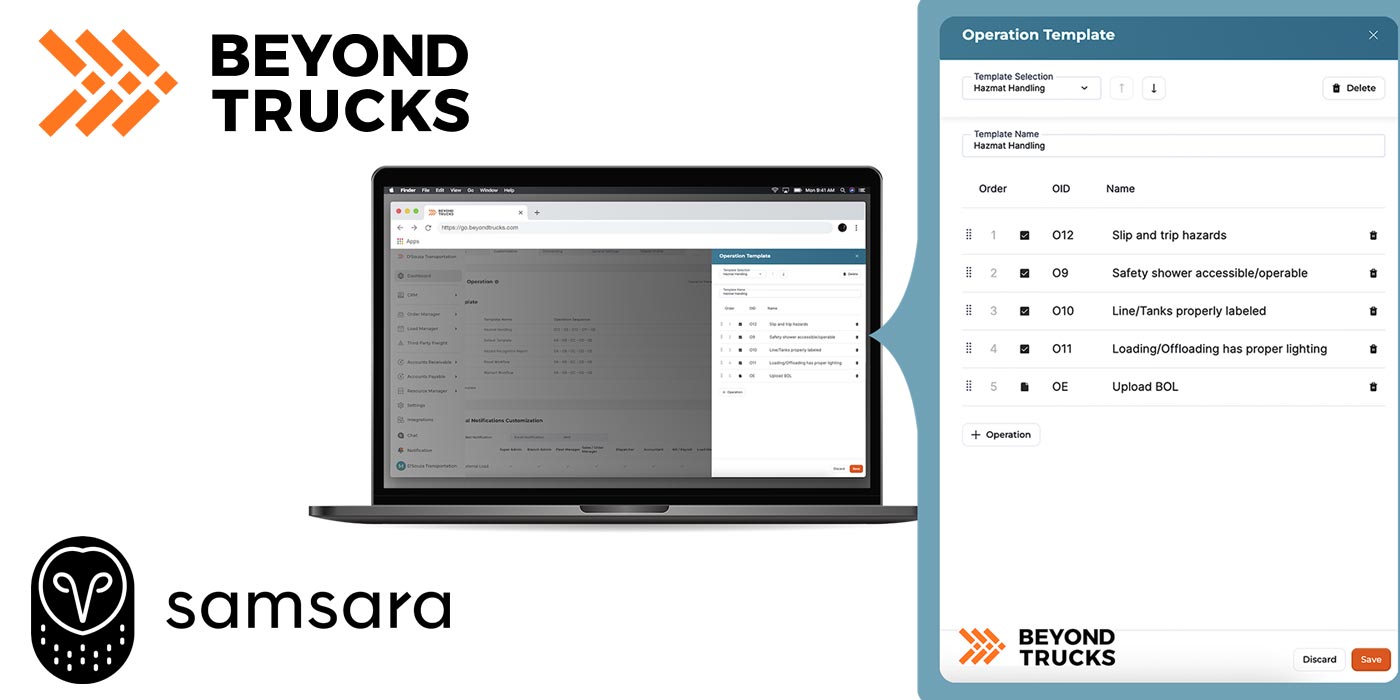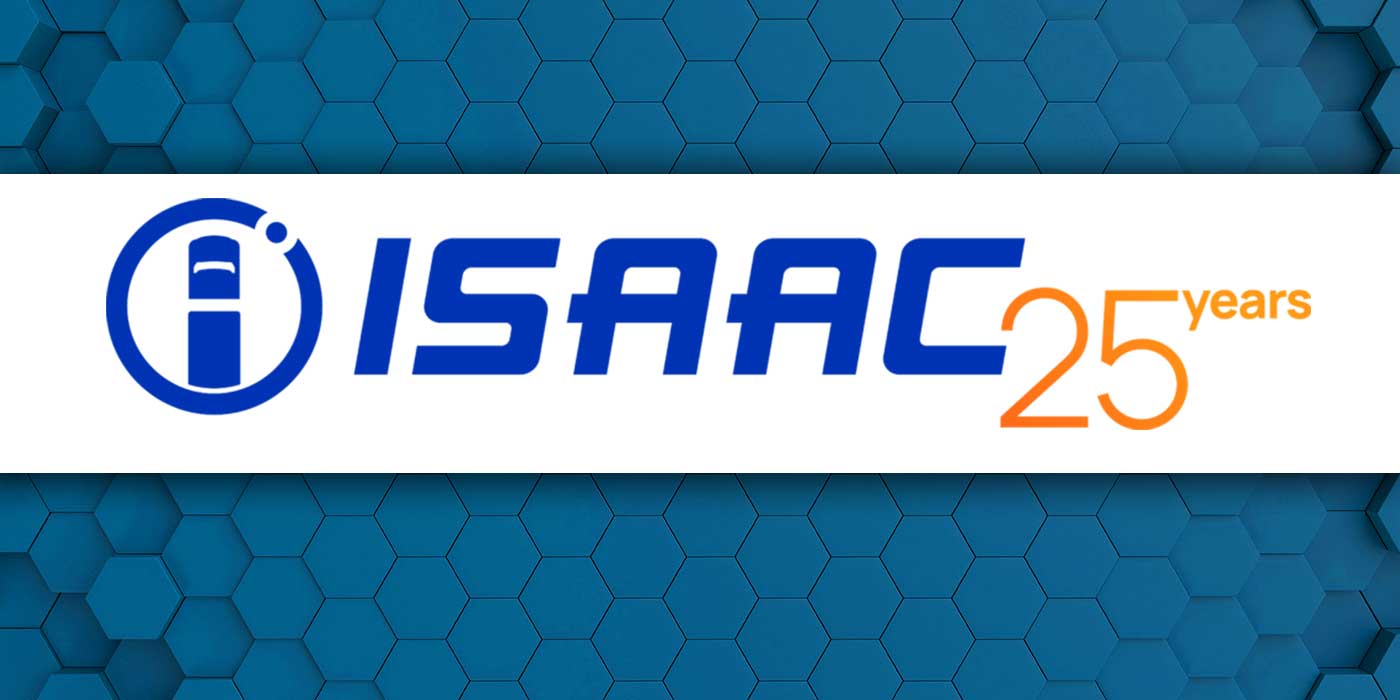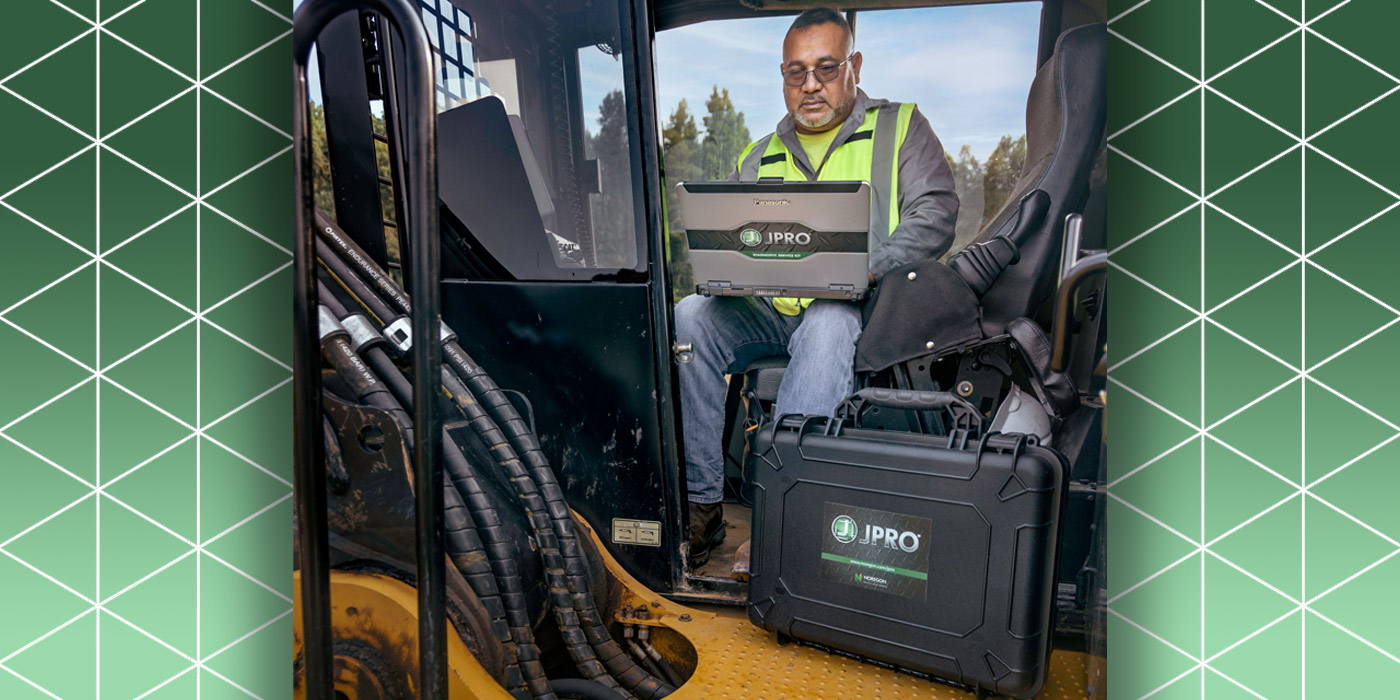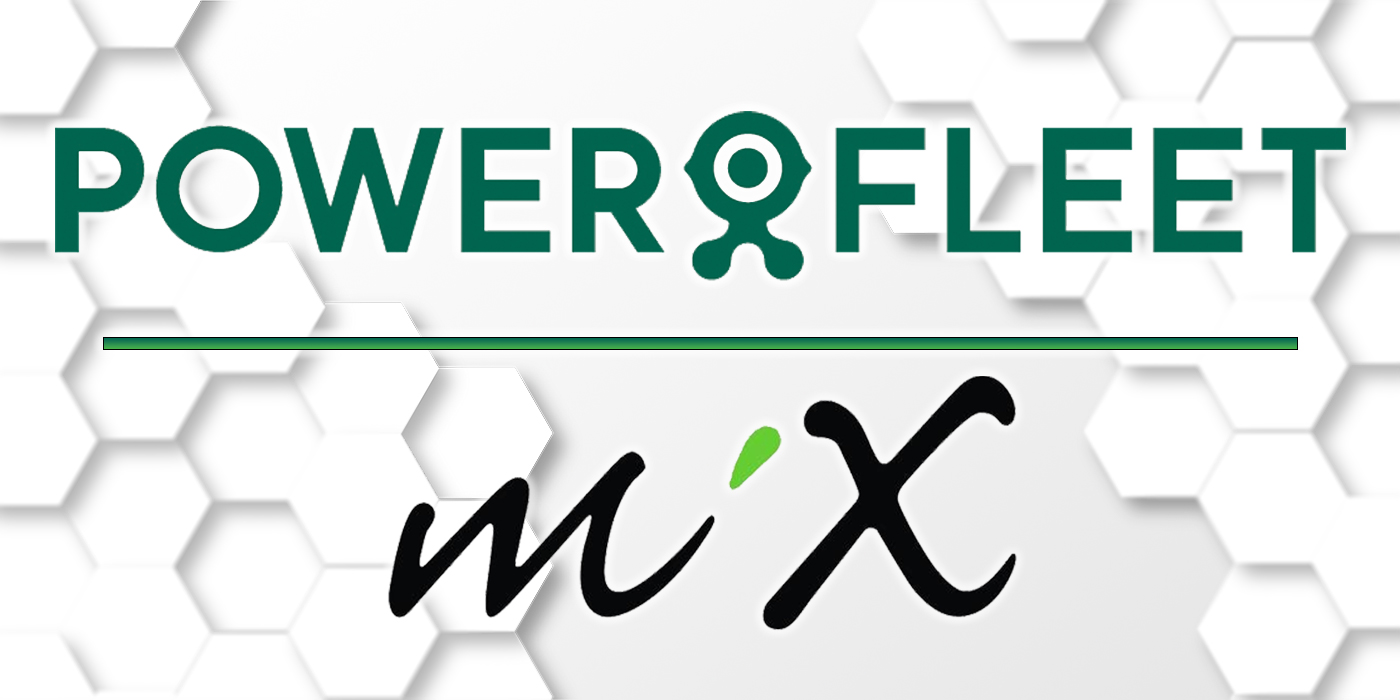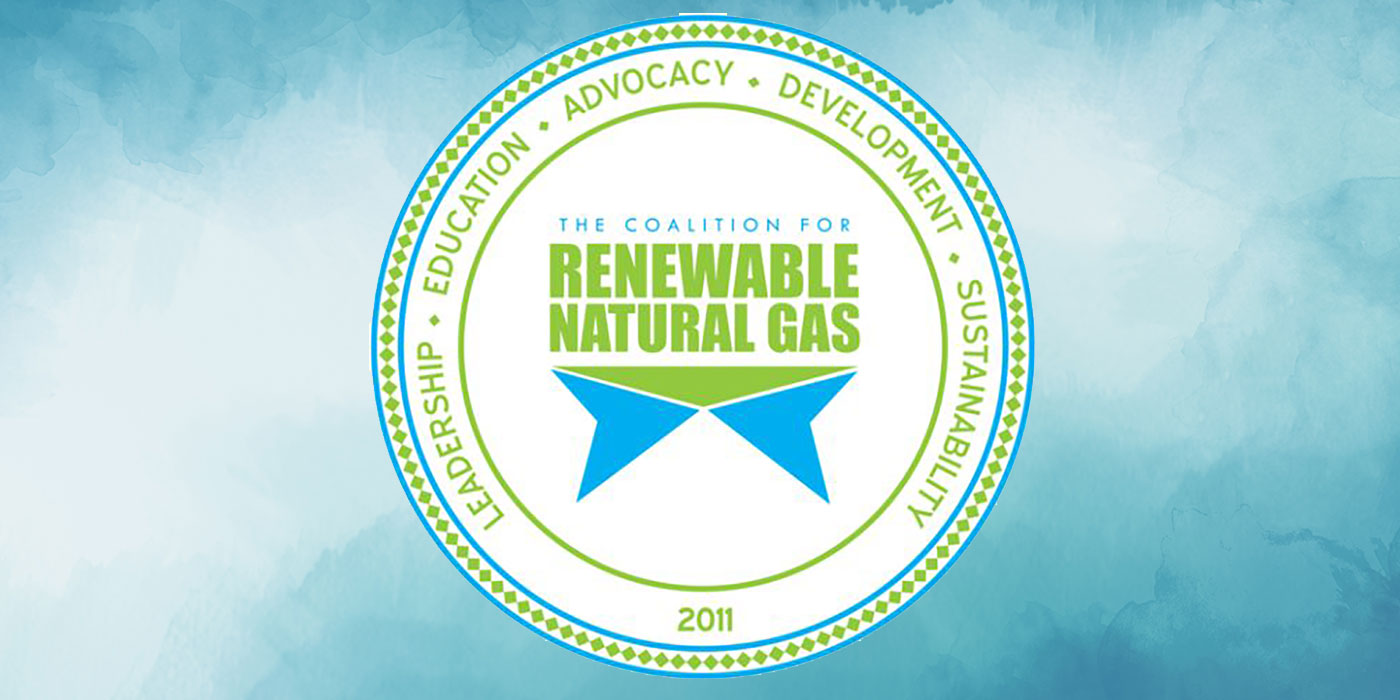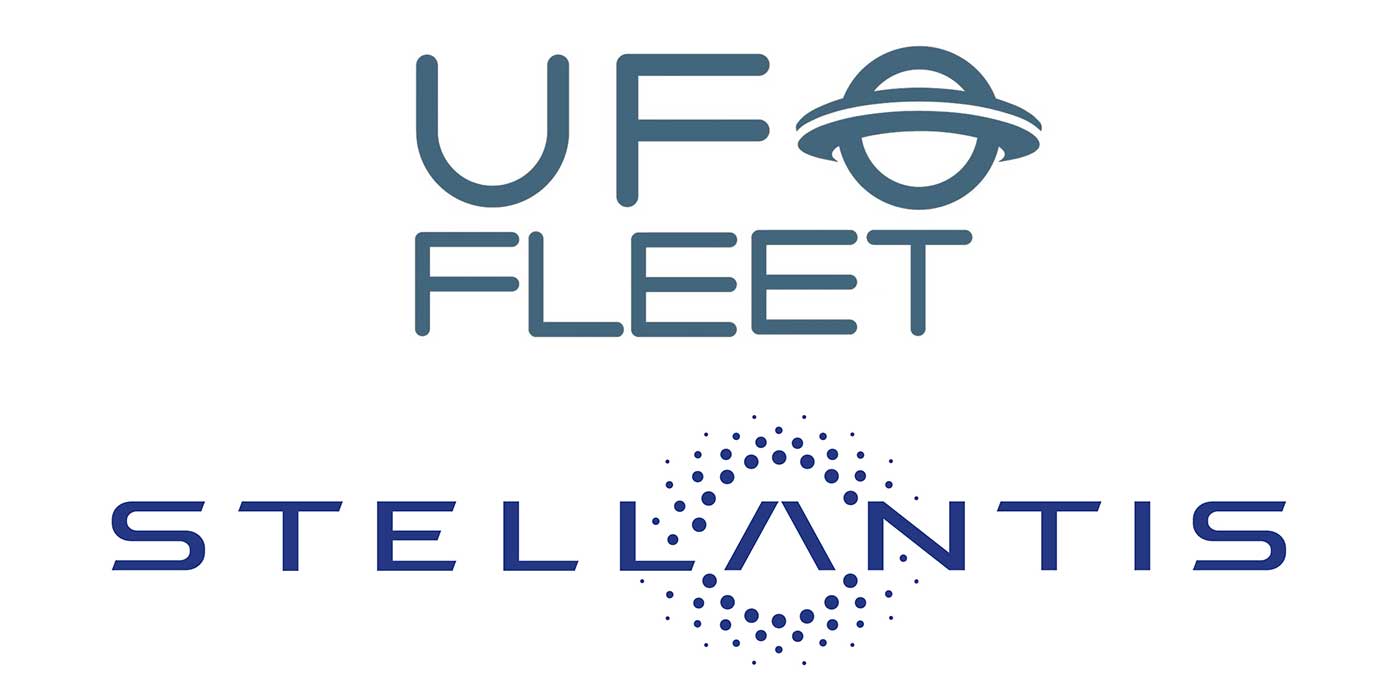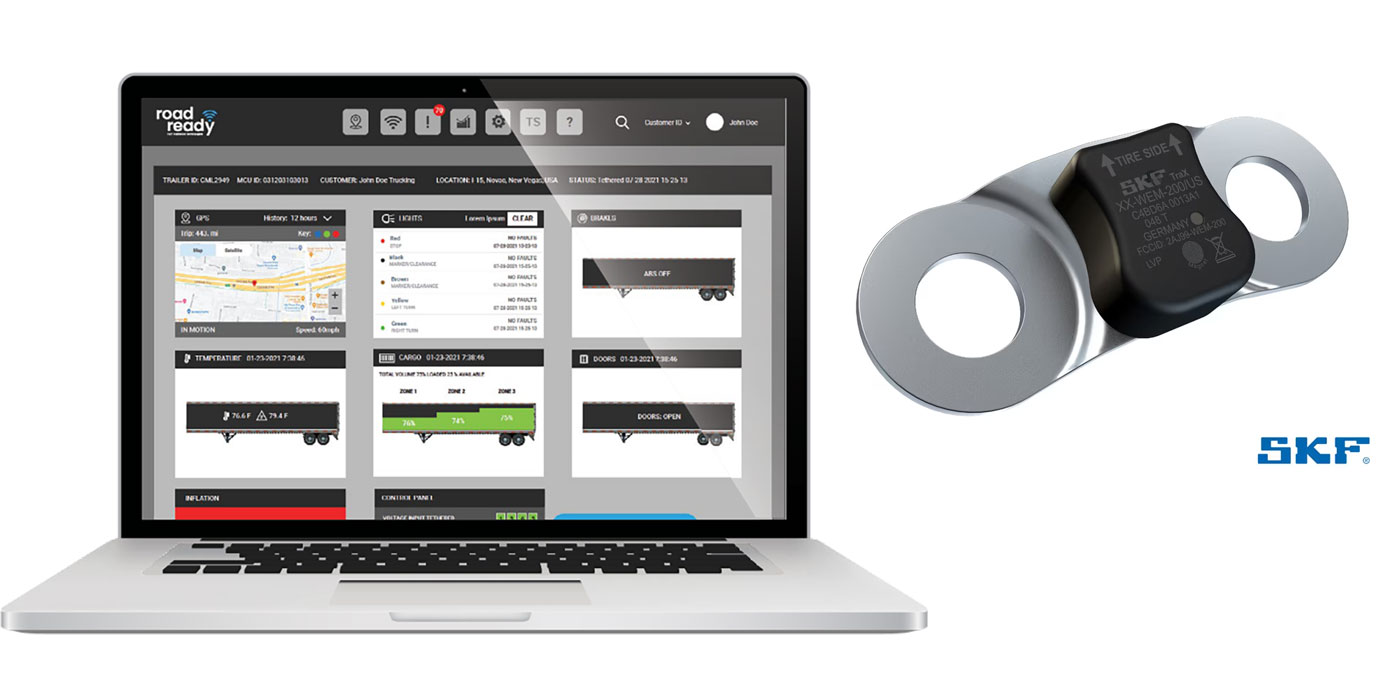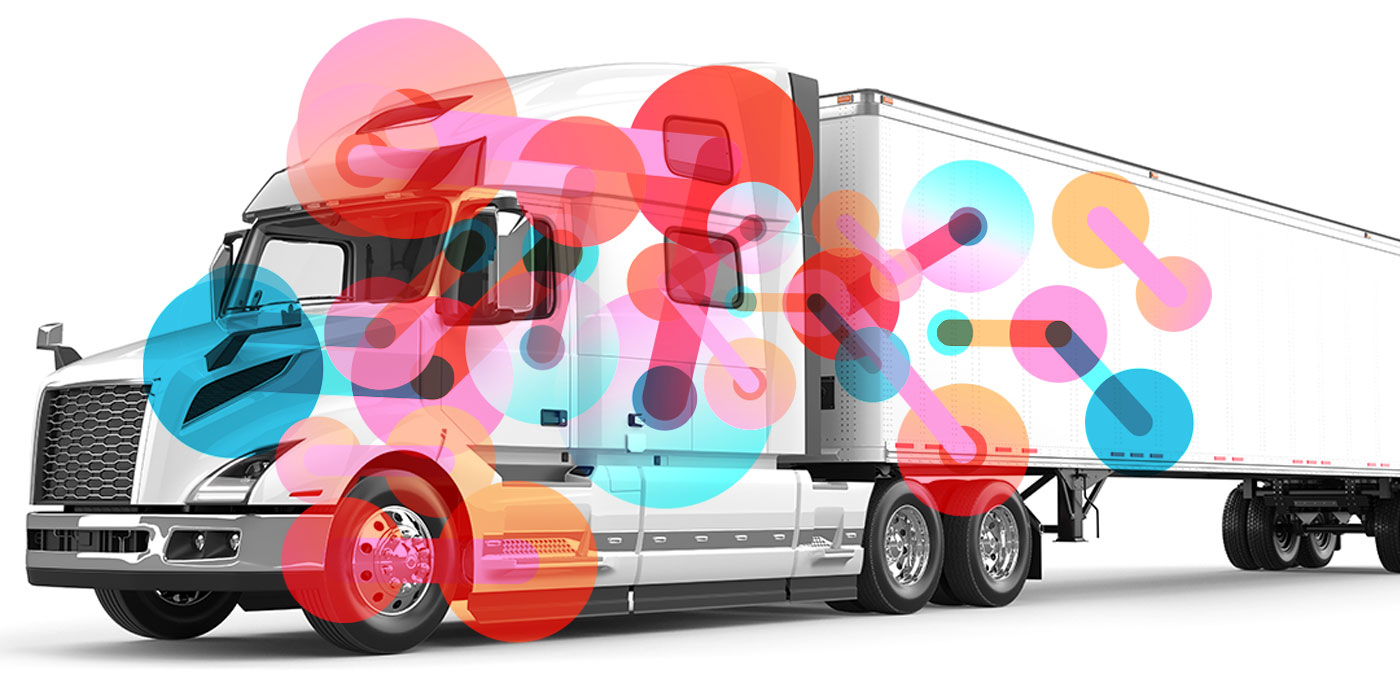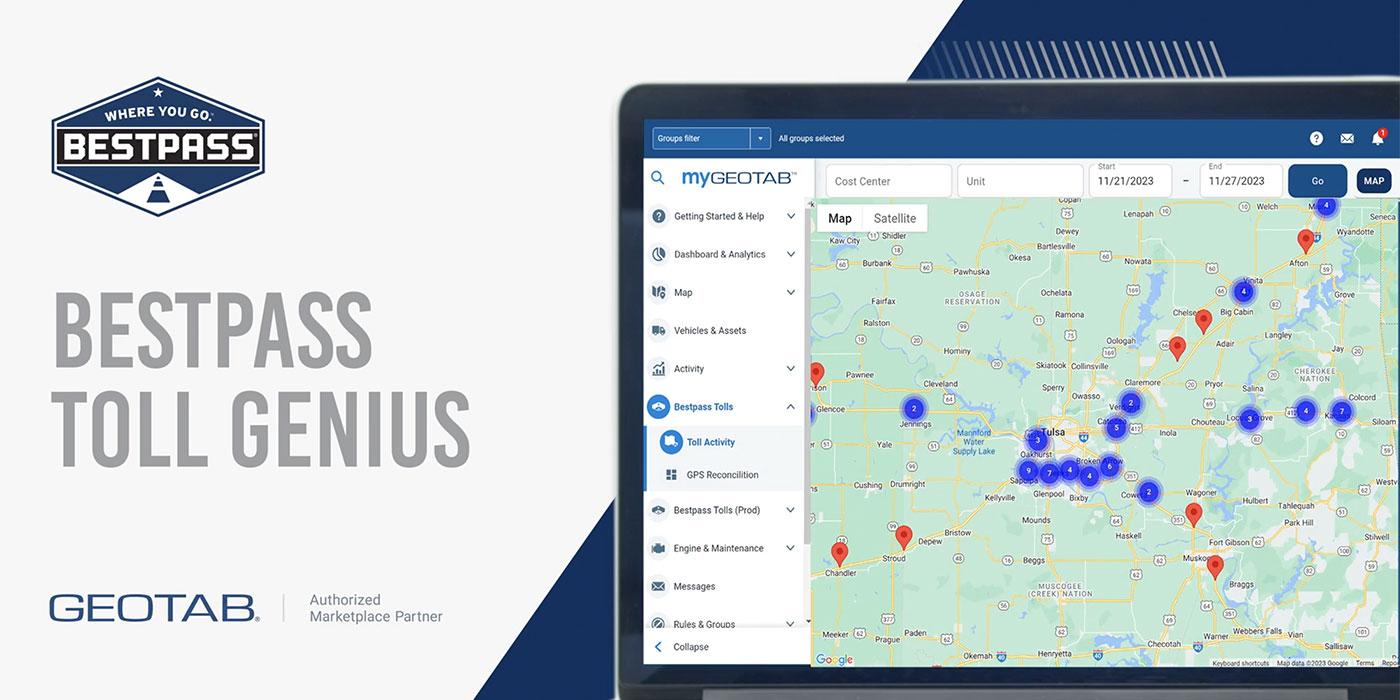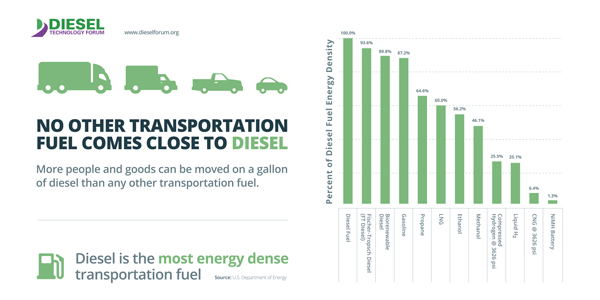
The new generation of diesel technology is helping meet climate and clean air challenges of today, according to a statement by the Diesel Technology Forum.
“Today’s advanced diesel technologies are more widely adopted, more energy efficient and lower in emissions than previous generations, with even further improvements coming online. Coupled with growing success using advanced renewable bio-based fuels, diesel engines are well-positioned for the future of goods movement in America and around the world,” said the Diesel Technology Forum’s executive director, Allen Schaeffer. “As elected officials debate our future energy and technology paths, we must not take our eye off the importance of continued progress today and technologies like diesel that are delivering substantial climate benefits and clean air and economic progress on a wide scale, now. Getting more new-technology diesel engines on the road will deliver the biggest clean air impacts at the lowest cost, while also helping achieve climate goals.”
New diesel trucks deliver clean air, climate and societal benefits
Schaeffer continued: “As verified by the Health Effects Institute Advanced Collaborative Emissions Study (ACES), the emissions control technologies present in the newest-generation diesel applications – technologies meeting U.S. 2007/2010, Euro VI/6, China 6, and Bharat Stage VI (India) standards – deliver dramatic improvements in emissions. The study affirmed that the aftertreatment technologies used in modern diesel engines are highly effective: diesel particulate filters reduce particulate matter (PM) emissions by more than 90%, and selective catalytic reduction systems reduce smog-forming nitrogen oxide (NOx) emissions by 94%. Researchers also noted that ‘the overall toxicity of exhaust from modern diesel engines is significantly decreased compared with the toxicity of emissions from traditional-technology diesel engines.
“Today, diesel remains the dominant technology in long-haul trucking, powering 97% of Class 8 big-rig trucks in the United States. A growing percentage of diesel-powered commercial trucks rely on the newest-generation diesel technologies, which deliver near-zero emissions performance while using less fuel: today, more than 36% of commercial Class 3-8 vehicles are of this newest-generation technology (2011 and newer model years), up from 30% in 2016. These more than 4.9 million new-generation commercial diesel trucks have removed more than 26 million tonnes of NOx and 59 million tonnes of carbon dioxide (CO2), compared to previous generations. These new trucks are so clean that it would take 60 new-generation diesel trucks to equal the emissions from one truck sold in 1988.
“In ports, air quality is rapidly improving thanks to the accelerated turnover to new clean diesel engines deployed in many cargo handling applications, along with retrofit activities to install emission control technologies on older diesel engines. Nowhere is this more evident than in Southern California. The Ports of Los Angeles and Long Beach estimate that between 2005 and 2015, fine particle emissions (PM) fell by 85% or 745 tons per year, while NOx fell by 51% or 8,325 tons per year. Other ports have also reported similarly impressive emission reductions. The overwhelming majority of these clean air achievements are attributable to the introduction of clean diesel technology, rather than to alternative fuels.
“Furthermore, the U.S. Environmental Protection Agency (EPA) and National Highway Traffic Safety Administration (NHTSA) estimate that the Commercial Vehicle Fuel Economy and Greenhouse Gas Reduction Standards Phase 1 rules saved 270 million tons CO2 and 530 million barrels of oil between 2014 and 2018, and that the Phase 2 rules will save another 1 billion tons of CO2 and nearly 2 billion barrels of oil between 2021 and 2027. Knowing that the majority of medium and heavy-duty trucks run on diesel, and that the larger benefits are derived from Class 8 trucks that are almost exclusively run on diesel, it is safe to say the majority of these CO2-reduction benefits are delivered by diesel technologies.
“Even further progress for lower emissions is on the horizon, as truck and engine manufacturers are engaged with the U.S. EPA and the California Air Resources Board [CARB] on the Clean Truck Initiative, developing tomorrow’s generation of diesel engines. From coupling with hybrid-electric technology and battery-storage systems, to pushing thermal efficiency boundaries, to advanced waste-heat recovery systems, to utilizing high-quality advanced renewable biodiesel fuels, new-generation advanced diesel technology is uniquely suited to enable commercial trucking to contribute to our sustainable future.
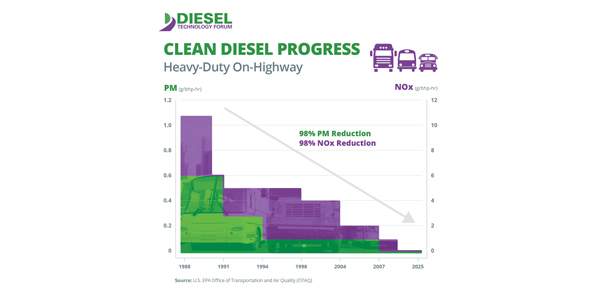
New-generation diesel buses: the safe, reliable and clean transportation option
“New advanced technology diesel-powered school and transit buses are cost-effective proven, safe, reliable, durable, and a near-zero emissions options for school districts and transit authorities across our nation. Buses powered by the newest, most advanced diesel engines (2011 and newer model years) deliver significant emissions reductions over older generations of the technology, meaning cleaner air for kids, commuters and communities.
“Today, 95% of America’s roughly 500,000 school buses run on diesel fuel. It remains the technology of choice for most school districts. Of these, 40% rely on the newest, cleanest, most advanced diesel engines (2011 and newer model years); these buses are equipped with selective catalytic reduction and particulate control technologies, which combine to achieve near-zero emissions for both NOx and PM. Even with a growing field of alternative fuels, school bus fleet managers continue to show confidence in diesel for their school districts’ student transportation needs. Diesel’s environmental outlook and low-cost operation, combined with its record of continuous improvement, mean school districts across America will continue to choose diesel technologies well into the future. More children will benefit from investments in advanced diesel than any other technology. School districts have notoriously limited budgets, with the highest priority rightly going to teachers and education programs; transportation updates are often the lowest item on the list. To maximize the environmental benefits for the limited available funds, and to get the greatest number of kids in newer buses, the best investment is not the expensive all-electric option. Any alternative to diesel has a higher acquisition cost and required new fueling infrastructure investments, which can drain funds that would otherwise be used to turn over the fleet to newer technology, actually resulting in higher fleet emissions overall.
“America’s transit bus fleet tells the same story. In 2017, 90% of transit buses were powered by diesel engines and fuel, or diesel hybrid engines. Of that, about one-in-three diesel buses are of the latest clean diesel technology powered by an engine that meets strict emission standard for model year 2010 and later. Many cities have begun using the latest in diesel-hybrid technology to allow their transportation systems to be not only more efficient but also more environmentally friendly. Also, a growing number of transit districts are incorporating the use of renewable biodiesel fuels into their diesel bus fleets, further improving their environmental and climate sensibilities. The clean diesel option reduces far more emissions than available alternatives, thanks to clean diesel’s cost advantage. For instance, for a $10 million investment in new buses, a transit district can replace many more older and higher emitting buses with the clean diesel option and generate greater emission reduction than with expensive alternatives.
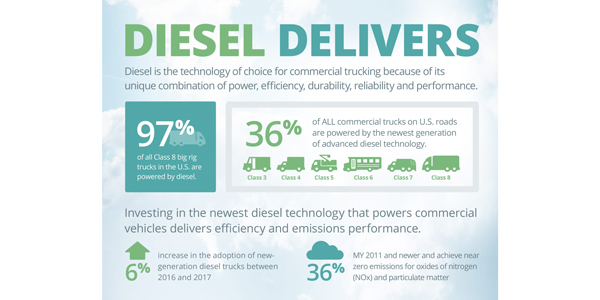
Continued investment in the future of diesel
“Even as manufacturers explore other fuels and technology options, continued investments in diesel are strong indicators about the future for advanced diesel engines. Thirteen states are home to heavy-duty diesel engine manufacturing, supporting $3.4 trillion in U.S. economic activity and more than 1.25 million American jobs.
“With well-established service and refueling networks across the United States to ensure maximum up-time, diesel is the proven partner in today’s overnight, same-day, just-in-time delivery world. Diesel remains the most energy-efficient internal combustion engine, one that offers an unmatched number of choices in size and performance for the broadest range of commercial vehicle operations. Along with near-zero emissions performance, choosing diesel ensures endless flexibilities in routing and operations to meet the ever-changing needs of customers.
Bio-based diesel fuels are a proven climate solution today
“Even though battery electric technologies get most of the headlines, it is diesel engines in commercial trucks and buses using advanced bio-based diesel fuels that deliver the most results. Look at California: in 2018, California’s use of biodiesel and renewable diesel fuels eliminated 4.3 million tons of CO2. Meanwhile, electric cars and trucks in the state resulted in only 1.2 million tons of CO2 reductions in 2018 – one third of the emissions reductions delivered by diesel engines using biodiesel fuels. Biodiesel’s contribution even exceeding the reductions delivered by ethanol. Since the state’s Low Carbon Fuel Standard (LCFS) program began in 2011, biodiesel and renewable diesel fuel have eliminated more than 18 million tons of CO2, according to CARB.”

